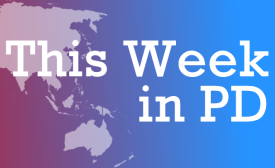united states
The fall of the Berlin Wall 25 years ago this month signaled the unmatched strength of U.S. economic and military power, but it also reflected the seductive charisma of American democracy and its open, pluralistic, prosperous society — or so Americans thought at the time.
The Under Secretary of State for Public Diplomacy and Public Affairs, Richard Stengel, will travel to New Delhi, India, November 17-18, where he will meet with government officials, civil society leaders, educators and students, business leaders and entrepreneurs, and representatives of the media.
Dropping bombs isn't the only way to advance American interests abroad. (...) Certainly, the Islamic State poses an enormous threat to regional stability. But is the focus on military efforts the right one?
The Philippine diplomatic mission has taken "a giant leap" in its efforts to reach out to the Filipino diaspora with the launch of the mobile app version of Radyo Tambuli — the embassy's virtual radio platform in Washington, D.C.

Russia doubles down on its soft power vehicles to win the information war against the West.
Sohn Jie-Ae, dubbed one of the most powerful women in Asian media until her March exit from the network, spent an hour providing anecdote-filled, firsthand insight into Korea’s booming pop culture for a discussion titled “K-pop Mania: South Korea’s Place Under the Sun.” The event was organized by the USC Center on Public Diplomacy and co-sponsored by USC East Asian Studies Center and the Korean Studies Institute
This week the world of public diplomacy got a set of readings of similar significance. They mean trouble for the USA. The seismograph in the story is the Anholt-GfK Roper Nation Brands Index.
In the past four decades, since the disastrous events of the Stonewall Inn in 1969, the United States has undergone rigorous legal transformations to eliminate various discriminatory laws against its LBGT community.







